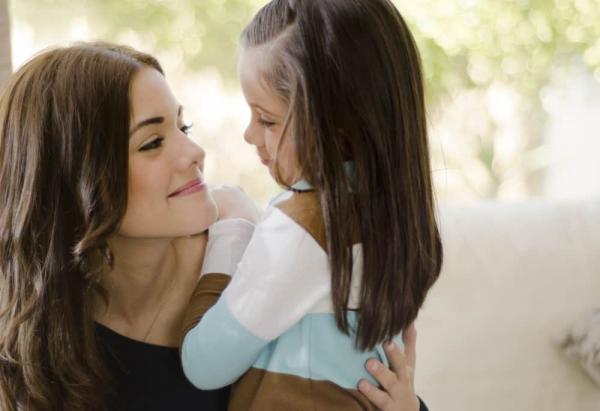
We want to be the best parents we can be. In today's world of plentiful parenting advice, moms feel a heavy weight of society's expectations - from packing her child's lunch with organic food to making sure she chooses the right career path as early as 3rd grade. But what do your children really need to know from their parents? Here are five definite things:
"I love you because ... "
Beyond just the ritual "I love you," tell her she is very special to you and explain why. Tell her how exciting it was when you found out you were expecting her. She will love to hear about the preparations you made in her behalf and how of all the girls in the world, she is the perfect one to be your daughter. These things will stay with her wherever she goes and you never know the positive impact a few loving words repeated often will have on your daughter.
"You are beautiful."
I know there is a push not to emphasize outer beauty when talking to our daughters, which is exactly why you need to tell her every day that she is beautiful. If you don't define for her what beauty is, someone else will. Tell her that her smile lights up the entire room. Tell her you love when she fixes her hair or that she looks wonderful when she dresses nicely. Show her how to carry herself well and feel confident in her own skin. The same goes for our sons; they need to hear you say they are handsome, even if they won't admit it.
"I love spending time with you."
Believe me, I get it. It is exhausting to keep up with everything and still have the energy to go outside and play, but maybe that is exactly why we should. I've seen a few articles going around about what to ask your child when he gets home from school, like an after-school interview. While that isn't inherently wrong, the surest way to stimulate conversation with a child is to say, "I would love to play with you!"
Take him outside for some fresh air; push her on the swing or play catch. Show him that you enjoy playing together and you will find that the conversation will start on its own. Once you get him talking, then it is easy to get him to open up about how things are going at school. You'll find that conversation will be much more natural during playtime because your child will feel comfortable.
"I was your age once."
It sounds outdated, but he or she needs to know — and often — that you have walked in his or her shoes. It may have been a different time and different circumstances, but the feelings were probably similar. Talk to her about some of the hard knocks that you've experienced at various stages in your life and tell her how you worked through them. As you demonstrate empathy to your child over the seemingly little things, she will learn to trust sharing her feelings with you, which will help her to be more willing to share the bigger things that will inevitably come along in her life.
"If you are ever in trouble, I will be there for you."
I do not believe in shaming as an effective parenting technique. Your child will make mistakes. We all make mistakes. He or she needs to know that when mistakes are made, you will be there to help rather than to shame or abandon him or her to others' judgments. The earlier this is established, the better for your child. Growing up, my dad would say, "If you are ever in a place and it turns out that things are not right, you just call and I will come and get you." Knowing that my father would help me even if I was in the wrong helped me to make choices that kept me safe and out of trouble.

